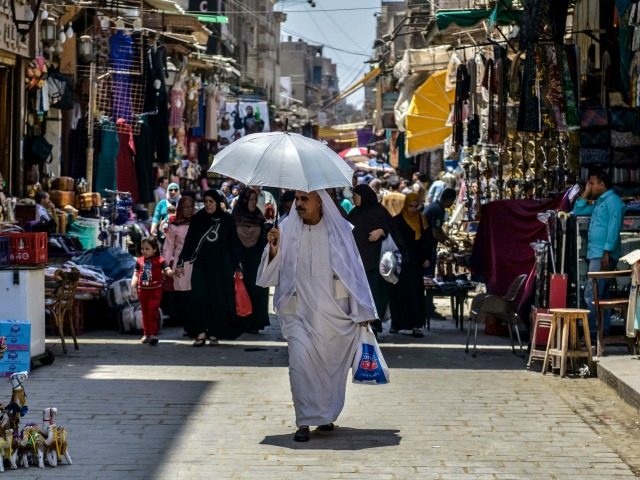CAIRO (AFP) – A year after jihadists bombed a Russian plane carrying holidaymakers in Egypt, tourism shows little sign of recovery in the Arab country grappling with an economic crisis.
In Khan el-Khalil, a historic bazaar in Cairo once full of tourists, a clothing store owner says he now spends his days surfing Facebook.
“I don’t have anything else to do,” said Amgad Qasabgi, 45, in front of his shop, a sequined two-piece belly dancing outfit dangling over his head.
The October 31, 2015 bombing of the plane claimed by the Islamic State jihadist group killed all 224 people on board after takeoff from the Red Sea resort of Sharm el-Sheikh.
Russia reacted by cancelling all flights to Egypt, with Britain cancelling flights to the resort town itself, decimating a tourism sector already battered by unrest following the country’s 2011 revolution.
Citizens of the two countries make up around 40 percent of foreign tourists to Egypt.
The drop in tourism revenues, a main source of foreign hard currency, has exacerbated a dollar shortage in Egypt that in turn has hit imports.
Government officials have blamed a foreign conspiracy targeting the Egyptian economy, while unveiling slick commercials to try to woo back the tourists.
“There are no foreign tourists,” said Qasabgi, a father of five. “Spending by Egyptian tourists does not cover our daily expenses.”
The bazaar’s cafeterias and restaurants are empty save for some Egyptian families and strolling students.
A few tourists hopped off two buses parked at a plaza in front of the nearby Hussein mosque, but most returned without buying any souvenirs.
“Tourism has totally died,” said Abdel Rahman, a salesman at a large store specialising in lanterns and inscribed silver chandeliers.
A family of European tourists enters the shop and haggles over a small lamp. They leave empty-handed.
“The few tourists who do come almost always don’t buy anything,” said Abdel-Rahman, turning off the light to save on his electricity bill.
Traditionally, tourism has provided about 20 percent of Egypt’s foreign currency needs.
In February, Prime Minister Ismail Sharif told state television the country had already lost up to $1.3 billion since the airliner disaster.
Even before the Russian plane disaster, the tourism industry had been badly hit.
-‘War on terrorism’-
In June 2015, police foiled an attempted suicide bombing near the famed Karnak temple in Luxor — one of Egypt’s most popular attractions — while 600 tourists were inside.
In September the same year, eight Mexicans were mistakenly killed by security forces in the vast Western Desert.
Last year, tourist numbers plunged by more than half, to 6.3 million, compared with 15 million in 2010. The number from Russia fell to 2.3 million, from 3.1 million in 2014.
At the same time, tourism revenues dropped by 15 percent to $6.2 billion in 2015, compared with the previous year, according to official figures.
The government aims to attract 20 million tourists, with revenues of $26 billion, by 2020, through an international campaign to promote Egypt and develop tourist sites.
Egyptian authorities say they are in a “war on terrorism” since the military overthrow of Islamist president Mohamed Morsi in 2013 unleashed a jihadist insurgency.
President Abdel Fattah al-Sisi, the former army chief, has vowed to restore order, but attacks have persisted, especially in the Sinai Peninsula.
Jason Shi, a Chinese citizen in Egypt on a business trip, said he could not resist visiting the historic landmarks.
“We got a warning from our foreign ministry not to visit Sinai or to stay late in the streets or approach security premises,” he said outside Cairo Museum.
“But I cannot miss this opportunity to visit famous places like the pyramids and Old Cairo,” said Shi, who was accompanied by a Mandarin-speaking tourist guide.
Sherif Ibrahim, a 59-year-old waiter at a kebab restaurant in Khan el-Khalil, doubted the prospects of a recovery.
“No tourist in their right mind would come to Egypt,” he said. “I’m not optimistic with the new season when there is talk of terrorism and calls for (anti-government) protests.”

COMMENTS
Please let us know if you're having issues with commenting.